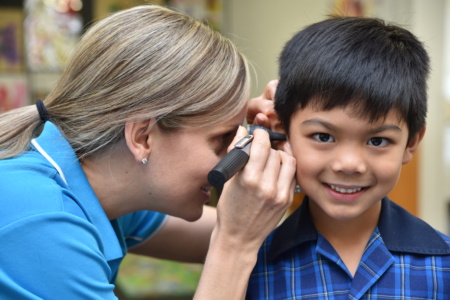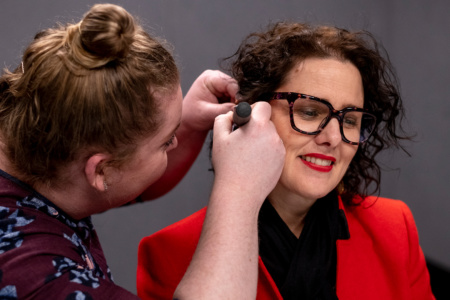A funding plan through the National Disability Insurance Scheme (NDIS) is valid for 12 months. Sometimes, you may unknowingly overspend or exhaust your funds. In other cases, your circumstances may change and impact the services you need.
We caught up with Hear and Say’s Customer Experience and Operations Manager, Petra Grum who shared the below tips for preventing your NDIS funds from being used up too quickly, and what you can do if it happens.

How to avoid running out of NDIS funding
- Always request a copy of the invoice from your provider.
- When you are nearing the end of your plan (ideally at least two months prior to the end date), request up-to-date invoices from all your providers.
- Set aside five to 10 per cent of your NDIS funding as “emergency funds” to cover a crisis, additional services or extra support.
If your NDIS funding runs out
“Hear and Say’s goal is to continue supporting all families to access support and services, so your first step should be to reach out to our friendly team should you run out of funds or have any concerns,” said Petra.
“As a charity, Hear and Say relies on funding from corporate and philanthropic partnerships, government funding agreements, the NDIS, Medicare and private programs to ensure a financially sustainable model that delivers optimal outcomes for all our clients and families.”
Other funding options
If your NDIS funding is exhausted and you still require services, there are other funding options to explore. These include:
- Medicare Health Care plan: There are a number of these plans available with varying eligibility, including General Practitioner Management Plans (GPMPs) for people with chronic or terminal medical conditions and/or complex needs; Allied Health Services under Medicare for people of Aboriginal and Torres Strait Islander descent; and the Better Access initiative which works to improve treatment and management of mental illness. Your GP can support you in determining the most appropriate funding options for you.
- Private health insurance: Private health insurance rebates may be available depending on your policy; please contact your provider for further information. If you are able to claim via your provider, please email our team to let us know.
- Fee for service: All Hear and Say services are offered privately and can be billed individually.
Hear and Say is a registered NDIS and government Hearing Services Program provider.
For any queries relating to your NDIS plan, please get in touch.
Contact us








